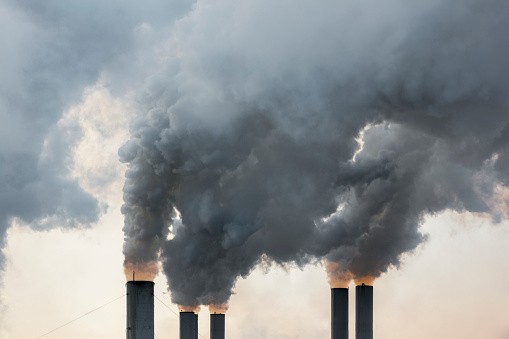Climate change is caused by methane, one of the powerful greenhouse gasses emitted due to human activities. Scientists have recently recorded the highest levels of methane emissions to date.
In two new studies published in the journals Earth System Science Data and Environmental Research Letters, the researchers determined that the two main sources of methane are fossil fuels and agriculture. More specifically, cows producing methane gas contribute more greenhouse gas emissions than initially thought.

Methane ranks as the second source of natural gas contributing to global warming after carbon dioxide. Carbon dioxide is emitted by coal, oil, and fossil fuels burned by companies. However, methane is 28 more powerful at trapping heat in the atmosphere compared to carbon dioxide.
The heat it keeps in the atmosphere is responsible for glacial melting and sea levels to rise. Regions such as the Arctic have recorded their hottest temperatures this year due to climate change.
Emissions from cattle and other ruminants are almost as large as those from the fossil fuel industry for methane,' said Rob Jackson from Stanford University. 'People joke about burping cows without realizing how big the source really is.'
Methane Emissions
More than 50% of methane emissions are from human activities and have increased to about 50 million tons every year since the early 2000s. Annual methane emissions are up 9%, or 50 million tons per year, from the early 2000s when methane concentrations in the atmosphere were relatively stable.
Jackson said that the increased methane levels in the atmosphere since 2000 is equivalent to putting 350 million more cars on the roads or doubling the total emissions of Germany or France. 'We still haven't turned the corner on methane," he said.
One study had measured that methane from fossil fuels are burning at rates 40% higher than previously thought. In the past 300 years, methane in the Earth's atmosphere has increased by about 150%. Benjamin Hmiel from the University of Rochester said, 'Placing stricter methane emission regulations on the fossil-fuel industry will have the potential to reduce future global warming to a larger extent than previously thought.'
Read Also: 'Impossible' Arctic Wildfires Emerged Due to Global Warming
Controlling Human Activities
Since most of the methane emissions are because of human activities, or anthropogenic, controlling this activity can result in a significant impact. From 2000 to 2017, methane emissions levels predict that the will heat up by 4 degrees Celcius before 2100.
The Global Carbon Project said, 'This is a dangerous temperature threshold at which scientists warn that natural disasters, including wildfires, droughts and floods, and social disruptions such as famines and mass migrations become almost commonplace.'
'Natural gas use is rising quickly here in the U.S. and globally,' Jackson said. 'It's offsetting coal in the electricity sector and reducing carbon-dioxide emissions, but increasing methane emissions in that sector. As a result, we're emitting more methane from oil and gas wells and leaky pipelines.'
© 2026 ScienceTimes.com All rights reserved. Do not reproduce without permission. The window to the world of Science Times.











